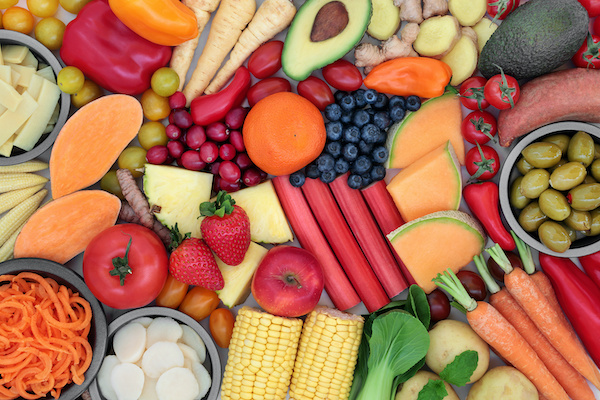Did you make a New Year’s resolution? Some of the most common ones are to lose weight, get more exercise, clear clutter, get organized, or learn something new. There is a problem with these and many other common resolutions, says Kitty Broihier, who is a registered dietitian, mindful eating instructor, and eating habits coach. The problem is they are desired outcomes — not goals.
What most people consider goals are actually outcomes. An outcome is a final product, or the result of whatever action you’ve taken.
Kitty Broihier, Registered Dietitian, Mindful Eating Instructor, Eating Habits Coach
A goal is what comes before the outcome. It’s what you need to do to reach your desired outcome. To figure that out, Kitty suggests you try to envision the outcome you want and then take a step back and widen your view.
Think about three or four things, or even just one, that would get you a little closer to what you want as your ultimate outcome. These things should be specific and actionable.
Kitty
Resolutions overwhelm
What’s the problem with thinking about outcomes as specific goals? First, it can make things seem more daunting. Deciding you want to lose weight, say 20 pounds by the end of the year, for instance, might feel overwhelming. But taking it step-by-step can relieve some of the pressure you might be feeling when you think about your ultimate outcome.
Secondly, outcomes are too general to be goals. Without specifics, you won’t know how to make it happen and you won’t know how to measure any progress you might make.

For example, maybe your desired outcome is to switch to more of a plant-based diet. What goals could you set? Kitty has some suggestions.
A few goals that would support that outcome might be finding some recipes that look good and trying out a new one each week, or every other week you could choose one vegetable you’ve never had before and try it out. Another goal could be to take some plant-based cooking classes in person or virtually. You could even go really practical and simply make a goal of eating a salad every day or every other day or swapping a granola bar snack for a piece of fresh fruit each day.
Kitty
So … envision your desired outcome — use it as your inspiration, then come up with some specific, doable steps that will get you closer to that outcome, and get started. By the way, if you were full speed ahead on your resolution(s) on January first but have already run out of gas, you are not alone. It happens to nearly everybody.
Don’t give up. Start again, using Kitty’s advice. Phew, pressure’s off! Happy New Year!
PS If you think you could use some help setting and reaching your goals, Kitty runs a Facebook group called The Eating Habits Lab. It’s for people who want to create sustainable, effective eating habits that fit their lifestyle. Kitty says members “can get ideas and support for modifying their eating habits and celebrating their progress.”

Leave A Comment